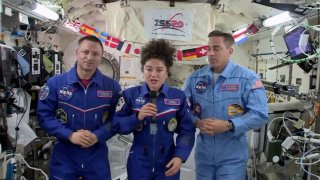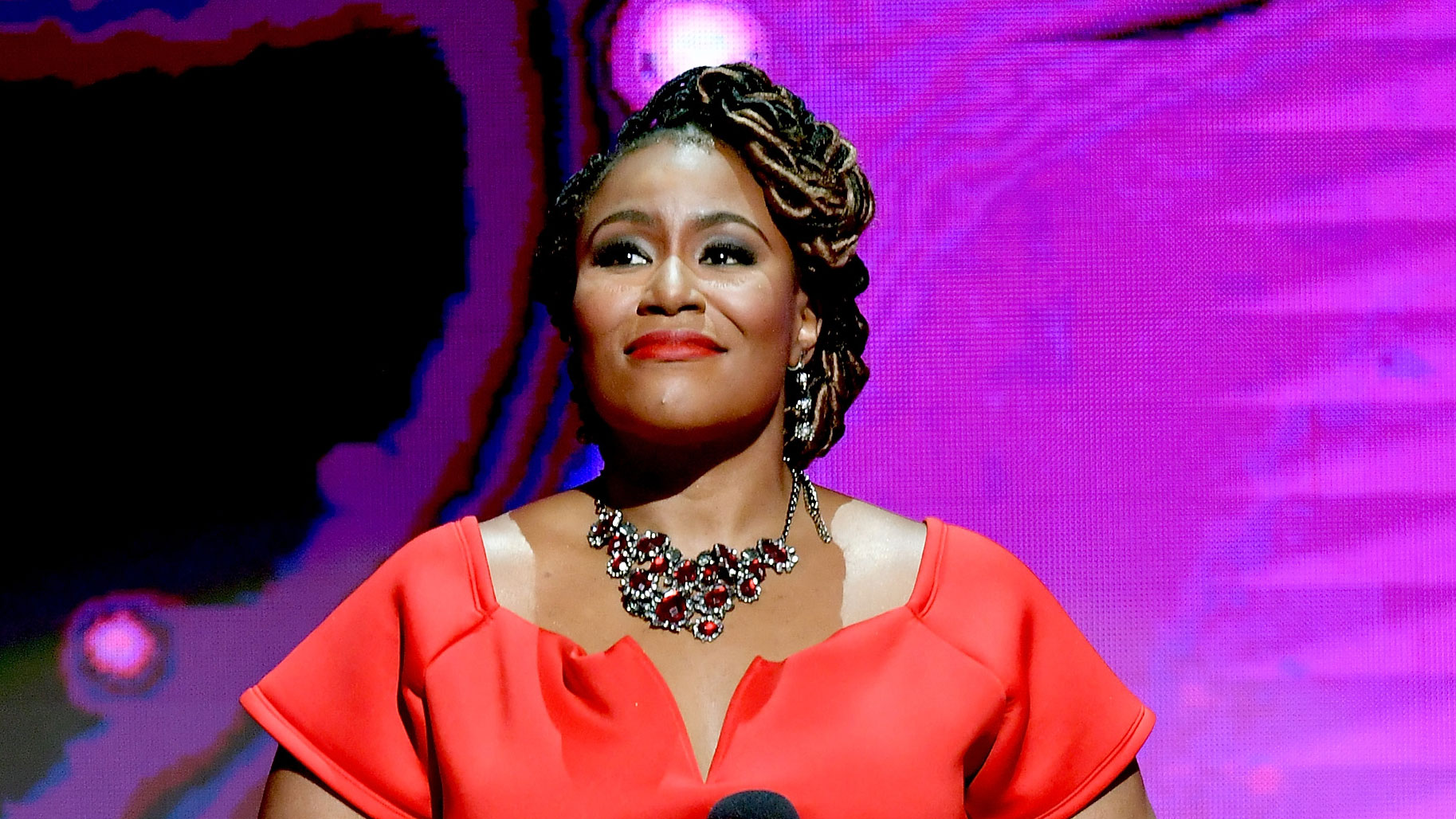
A U.S.-Russian crew landed safely Friday in the steppes of Kazakhstan following a stint on the International Space Station and was greeted with extra precautions due to the coronavirus.
NASA astronauts Jessica Meir and Andrew Morgan. and Russian cosmonaut Oleg Skripochka touched down as scheduled at 11:16 a.m. (0516 GMT) Friday. Their Soyuz capsule landed under a striped orange-and-white parachute about 150 kilometers (93 miles) southeast of Dzhezkazgan in central Kazakhstan.
On Friday, Russia's space corporation Roscosmos said it had 42 coronavirus cases and reported the first deaths. It said two workers who died had tested positive for the virus and another employee, who died of pneumonia, was suspected of having the infection.
Russian officials said they took stringent measures to protect the crew members amid the pandemic. The recovery team and medical personnel assigned to help the three out of the capsule and to perform post-flight checks were under close medical observation for nearly a month before the landing and were tested for the coronavirus.
Get Southern California news, weather forecasts and entertainment stories to your inbox. Sign up for NBC LA newsletters.
Roscosmos director Dmitry Rogozin said the three astronauts were feeling well.
Morgan wrapped up a 272-day mission on his first flight into space. He conducted seven space walks, four of which were to improve and extend the life of the station’s Alpha Magnetic Spectrometer, which looks for evidence of dark matter in the universe.
Meir and Skripochka spent 205 days in space, with Meir carrying out the first three all-women spacewalks with crewmate Christina Koch, who returned from space in February.
U.S. & World
News from around the country and around the globe
The crew members smiled as they talked to medical experts wearing masks. Following a quick checkup, they were flown by helicopter to Baikonur. From there, Skripochka will be taken to Moscow, while Morgan and Meir will be driven from Baikonur to Kyzylorda, 300 kilometers (190 miles) away, to board a NASA flight to Houston.
Restrictions on international flights imposed by Kazakhstan required the long drive, said Vyacheslav Rogozhnikov, a Russian medical official who oversaw the crew’s return.
“A 300-kilometer ride after landing is quite a load on the astronauts,” he said, adding that Russia deployed its doctors to help the astronauts during the journey, if needed.
Skripochka will spend three weeks under observation at a medical facility at the Star City cosmonaut training center outside Moscow, Russian space corporation Roscosmos said. Star City officials said the medical personnel monitoring him will wear hazmat suits to protect him from becoming infected with the new virus.
On Thursday, the Russian government coronavirus headquarters reported the first infection at the Star City, which serves as the main hub for pre-flight training of U.S., Russian and other international crew members of the International Space Station. The Star City also has residential quarters for cosmonauts and support staff.
The crew returned to Earth exactly 50 years after the Apollo 13 astronauts splashed down in the Pacific after an oxygen tank explosion aborted the moon-landing mission.
Speaking from the orbiting outpost before their landing, the three said that coming back to a world drastically changed by the pandemic would be challenging. Morgan said they tried to keep up with coronavirus news in space, but added that it was hard to comprehend what was really going on below.
“It is quite surreal for us to see this whole situation unfolding on the planet below,” Meir said. “We can tell you that the Earth still looks just as stunning as always from up here, so it’s difficult to believe all the changes that have taken place since both of us have been up here.”
A new crew comprising NASA’s Chris Cassidy and Russians Anatoly Ivanishin and Ivan Vagner arrived at the station on April 9. They said before blastoff that they had been under a very strict quarantine for a month before the flight and felt well.



